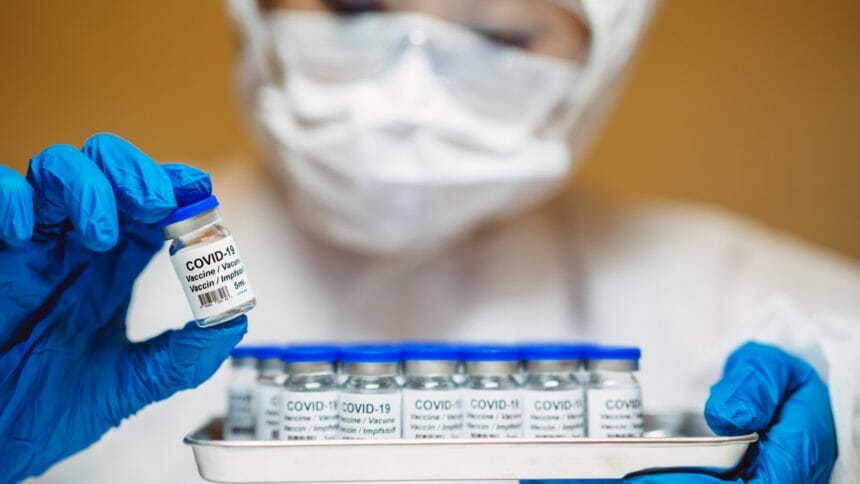
The Biden administration on Tuesday announced the Feb. 11 launch of the Federal Retail Pharmacy Program, expected to help federal and state officials expand vaccine access, including potentially independent living and other long-term care residents who have been shut out of vaccination clinics so far.
The program involves 21 national pharmacy partners and independent pharmacy networks and will operate similar to flu clinics.
Initially, the program will supply approximately 1 million doses per week to about 6,500 pharmacies. As more vaccine doses become available, the program will expand to include more than 40,000 pharmacies nationwide.
Independent pharmacies encouraged
Although assisted living communities and nursing homes were included in priority groups for vaccination by the Centers for Disease Control and Prevention, independent living residents — even those who live on the campus of continuing care retirement communities, also known as life plan communities — frequently have been denied prioritization for vaccination, prompting reports in the lay media and advocacy from trade associations representing providers. And some assisted living communities and nursing homes opted not to be part of the federal program, which relies on CVS Health and Walgreens.
The National Community Pharmacists Association, which represents more than 21,000 independent pharmacies, including many that specialize in long-term care, said it was encouraged by the Biden administration’s plans to ship coronavirus vaccine doses directly to select pharmacies across the country.
“When independent pharmacies have access to the vaccine, they are able to quickly get the coronavirus shots in patients’ arms,” NCPA CEO B. Douglas Hoey, RPh, MBA, said in a statement. “We are encouraged by these efforts to accelerate vaccine distribution and strongly encourage the administration and state policymakers to fully include small business pharmacies in their plans.”
NCPA and the American Society of Consultant Pharmacists, with members who specialize in long-term care, recently called on state governors to turn to independent long-term care pharmacies to immunize older adults.
“Independent long-term care pharmacists have the experience, specialized knowledge and, most importantly, the relationships to bring the vaccine to the people who need it most,” Chad Worz, PharmD, ASCP chief executive, said in a statement.
The two leaders urged states to use the Federal Transfer Program to allocate vaccines to independent pharmacies to ensure vaccine access in rural, isolated and smaller assisted living communities, skilled nursing facilities and other congregate care settings. Their plea came as retail giants Walgreens and CVS Health came under criticism for the “bumpy” vaccination rollout at long-term care facilities.
Initial rollout
CVS Health announced Tuesday that it will begin offering COVID-19 vaccinations under the Federal Retail Pharmacy Program on Feb. 11 to eligible populations at a limited number of CVS Pharmacy locations across 11 states: California, Connecticut, Hawaii, Maryland, Massachusetts, New Jersey, New York, Rhode Island, South Carolina, Texas and Virginia.
In addition, CVS Health is working directly with officials in Indiana and Ohio to provide in-store vaccinations to eligible populations using state allocations.
CVS indicated that it will receive approximately 250,000 total doses through the retail pharmacy program. CVS has almost 10,000 pharmacy locations nationwide and said that it has the capacity to administer 20 million to 25 million shots per month.
Walgreens said it will provide COVID-19 vaccinations across 15 states and jurisdictions under the program beginning Feb. 12. Those include Chicago and the rest of Illinois, Connecticut, Delaware, Kentucky, Maryland, New Hampshire, New Mexico, New York City and the rest of York City, North Carolina, Puerto Rico, Vermont, West Virginia and Wisconsin.
In addition to the federal program, Walgreens is assisting several states and jurisdictions with vaccinations in select stores to eligible populations. The chain has administered more than 300,000 vaccinations through these efforts to date in Arkansas, California, Connecticut, Delaware, Illinois, Iowa, Louisiana, Massachusetts, Nevada, New York, Ohio, Puerto Rico, South Carolina and Texas, as well as in the cities of Chicago and New York.
Long-term care update
CVS Health said it will continue to make on-site visits to long-term care facilities through the federal Pharmacy Partnership for Long-Term Care as states activate different priority populations.
The company said it has completed the first round of COVID-19 vaccine doses to almost 8,000 skilled nursing facilities, and second doses are more than 60% complete.
At the 37,958 assisted living and other long-term care facilities contracted with CVS through the program, 68% of first doses have been delivered, and 5% of second doses have been completed. First doses at assisted living communities are expected to be completed by mid-February, the company said.
In fact, first doses at all long-term care facilities that selected CVS Health will be completed by mid-February. CVS said that “most states chose activation dates for assisted living and other facilities well into January, which prevented clinics from being scheduled earlier.”
Under the Pharmacy Partnership for Long-Term Care, Walgreens has provided more than 1.75 million vaccinations in long-term care facilities and across other vulnerable populations. The company said that first-dose vaccinations have been completed in more than 75% of facilities that selected Walgreens as their vaccine provider, and it is on track to complete all first doses by mid-February.
As of Jan. 31, Walgreens had given 566,431 first doses at assisted living and other long-term care facilities. The company also expects to have completed first doses at assisted living communities by mid-February




